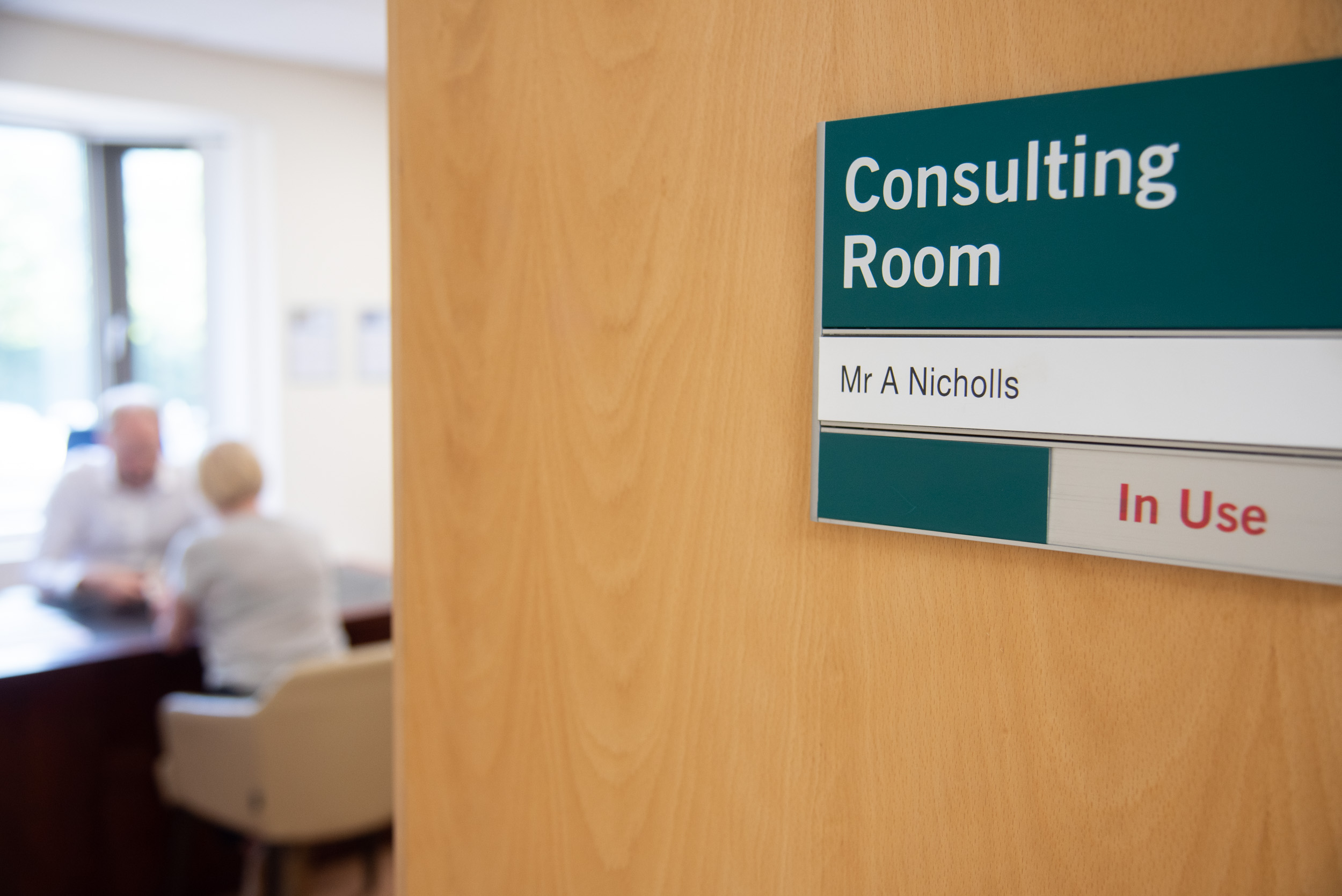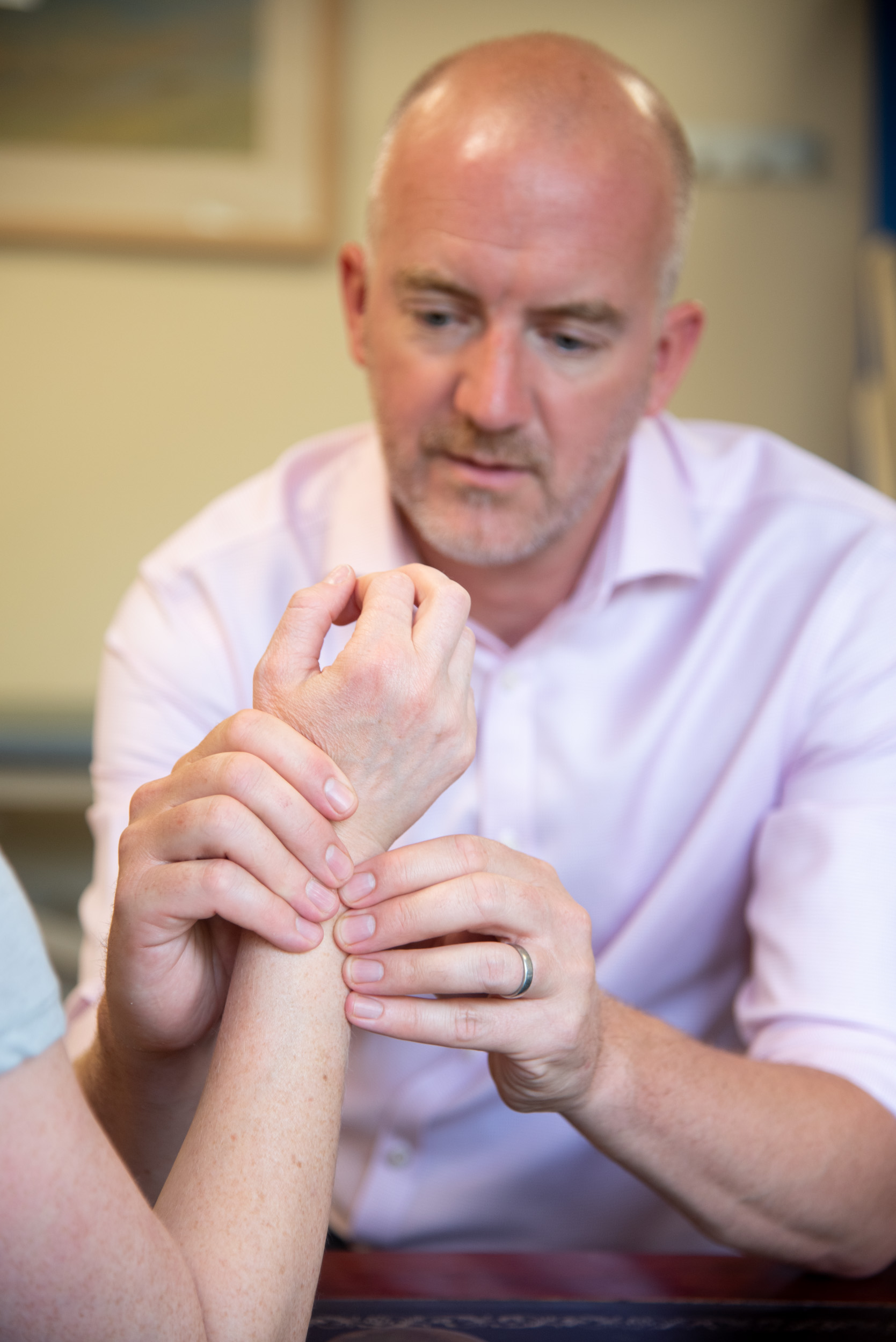The Patient Experience
 The normal course of events follows a referral from your GP or direct contact with the Circle helpdesk. This enables an appointment to be made for a consultation. Our regular clincs are on Tuesday or Thursday afternoons and evenings, at The Hampshire Clinic, or on Friday mornings, at the Candover Clinic.
The normal course of events follows a referral from your GP or direct contact with the Circle helpdesk. This enables an appointment to be made for a consultation. Our regular clincs are on Tuesday or Thursday afternoons and evenings, at The Hampshire Clinic, or on Friday mornings, at the Candover Clinic.
At the consultation we will discuss your problem, examine you and you may require an Xray, which we will arrange preemptively before seeing you for some conditions if we do not already have access to one, or after the consultation. We will be to diagnose your problem and discuss subsequent action. This may require further investigation, most commonly with nerve conduction studies or CT or MRI scans. Should this be necessary, we will arrange this to be done at a later date, then book you a follow up appointment with the results.
Should you require an injection, some can be performed at the initial consultation in the clinic whilst others we will book onto the theatre list in order to use the in-theatre X Ray for guidance.
Should you require an operation, this will be discussed with you, explaining the proposed benefits, risks, length of stay and rehabilitation required. Our usual operating list is on a Tuesday afternoon and evening, or Thursday morning. This is either in the Hampshire Clinic or Candover Suite.
 Most upper limb operations are performed as a day case procedure, not requiring an overnight stay. However should an overnight stay be required, this can be accommodated on both sites.
Most upper limb operations are performed as a day case procedure, not requiring an overnight stay. However should an overnight stay be required, this can be accommodated on both sites.
Surgery is either performed under local anaesthetic, regional block or general anaesthetic depending on the procedure and the patient.
Following surgery, you will have a follow up appointment at various intervals depending on the intervention.
We work closely with a team of hand therapists. Some conditions may be treated solely with hand therapy. Hand therapy after surgery is often required and represents an important part of the treatment.